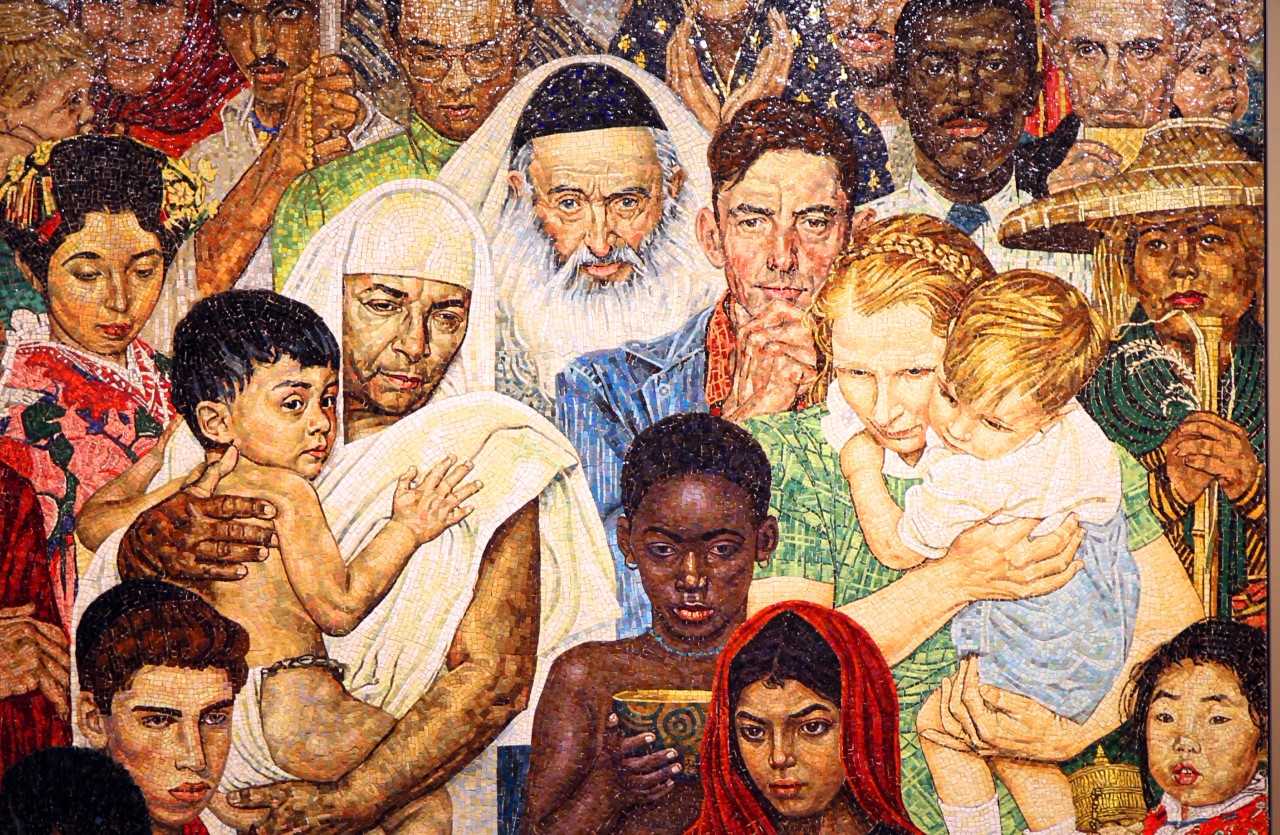Re-posted from the original source, University of North Texas at Dallas.
In celebration of United Nations Day, diplomat and international affairs scholar Hugh Dugan spoke at the University of North Texas at Dallas and weaved tales from throughout his career in foreign affairs with life lessons and personal remembrances. He related many to “The Golden Rule” – the famous, half-ton mosaic that was presented to the U.N. in 1985 as a gift of the United States and is based on the work of American artist Norman Rockwell.
The mosaic, which depicts people of different nationalities standing together with the words “Do unto others as you would have them do unto you” inscribed on it, was presented to the U.N. in 1985 by then First Lady Nancy Reagan.
“I worked at the United Nations for 26 years, and whenever I took someone on a tour, whenever I had a visitor, taking them to see the mosaic of the Golden Rule was always a highlight,” Dugan said. “It needs very little explanation.”
Dugan was the latest visitor to the UNTD campus as part of The Stewart Speakers, which is presented by Peter Stewart. Mr. Stewart’s connection to the “The Golden Rule” mosaic and the United Nations is particularly strong, and he attended Dugan’s presentation on Tuesday.
Mr. Stewart is a founder of the Thanks-Giving Foundation in Dallas. In the 1980s, supporters of the Thanks-Giving Foundation funded the creation of the mosaic version of Norman Rockwell’s Golden Rule painting. Two mosaics were made, one given as the gift from the United States to the U.N. in ’85, and the other is on display at Thanks-Giving Square in downtown Dallas. The mosaics were created in Venice, Italy.
Dugan said that living the Golden Rule takes action and commitment.
“It’s about what each of us brings to the table,” he said. “That’s what sets the tone, not waiting for someone else to do something. The giving of communities to each other testifies to our best instincts as a people, no matter the country or the culture.”
United Nations Day marks the anniversary of the entry into force in 1945 of the U.N. Charter. With the ratification of this founding document by the majority of its signatories, including the five permanent members of the Security Council, the United Nations officially came into being. Dugan said he sees only positivity from an international organization that promotes cooperation, and its greatest achievements are still ahead.
“The U.N. works glacially, obviously,” he said. “But have you seen what glaciers leave behind? Every year or so the heads of each state arrive in New York. They may not succeed in getting answers, but they have 150 heads of state in the room at once. They each take their five minutes to talk. They each take turns.
“That convening of power and engaging is important. As a body, the U.N. agrees routinely on complicated things from all corners of the world. I like to take this as momentum and evidence of the world’s progress. The best way to change the world is to start with your corner of it.”
Dugan, a Seton Hall University International Affairs Scholar, continued with many of those themes in a related talk with students, faculty and staff, “Giving to Grow a Community.”
“Being local and living globally is the premise of this university, which is so impressive to me,” he said. “Many students today want to know, ‘is there’s an app for that?’ The contribution we can make in our community has an impact and connection – locally and globally.”

Also recognized was a new book, “Hope Over Fear,” history of Dallas United Nations Association, written by members Norma and Bill Matthews, launched for Dallas UN Day. Re-dedication of the Golden Rule Mosaic at the U.N. in 2004 is a feature story in the 62 year archive of the educational advocacy group. Mr. Dugan delivered the keynote speech at the UNT Dallas College of Law campus.